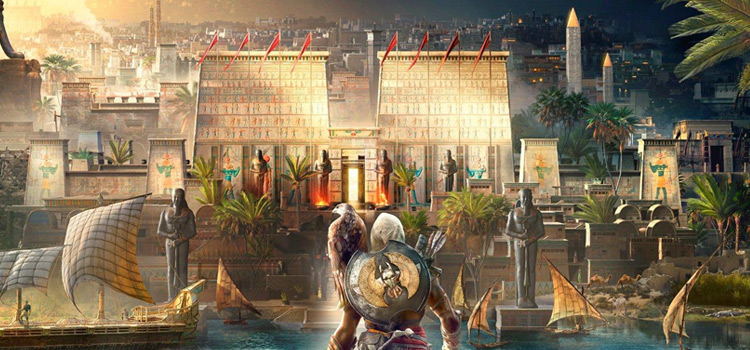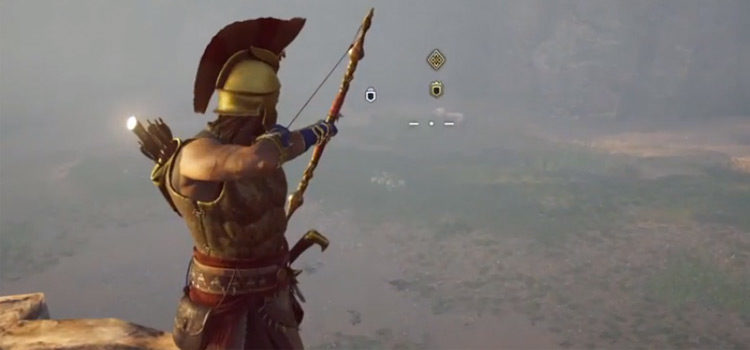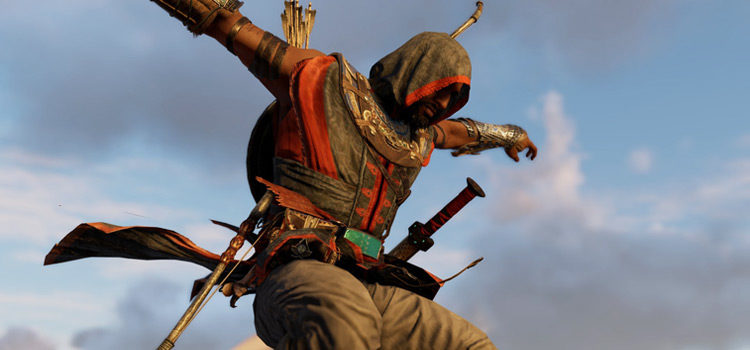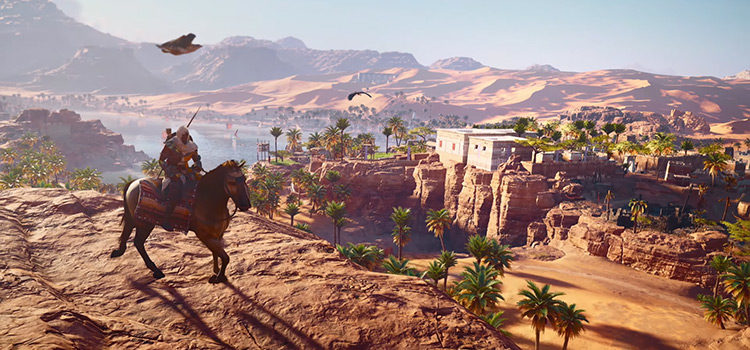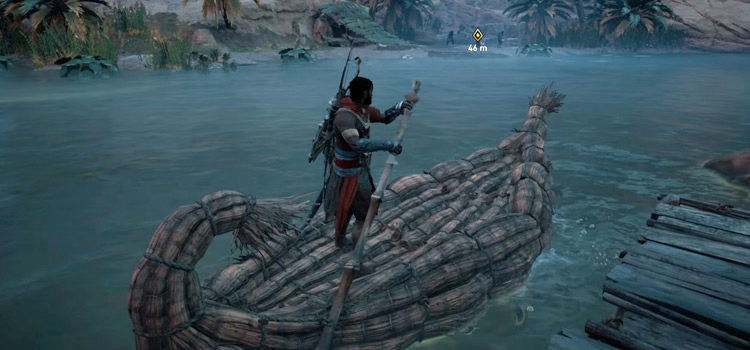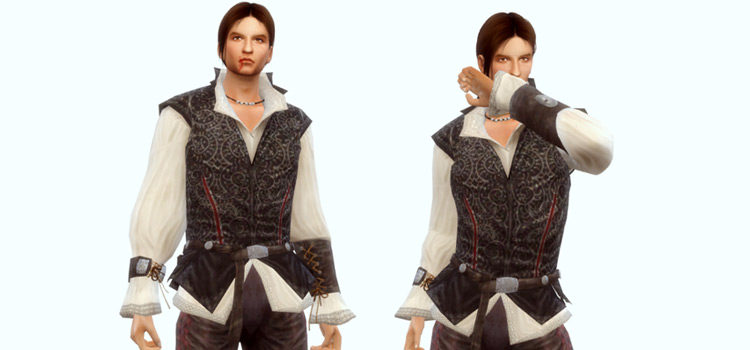Ranking The Best Assassin’s Creed Games From The Series
This post may contain affiliate links. If you buy something we may get a small commission at no extra cost to you. (Learn more).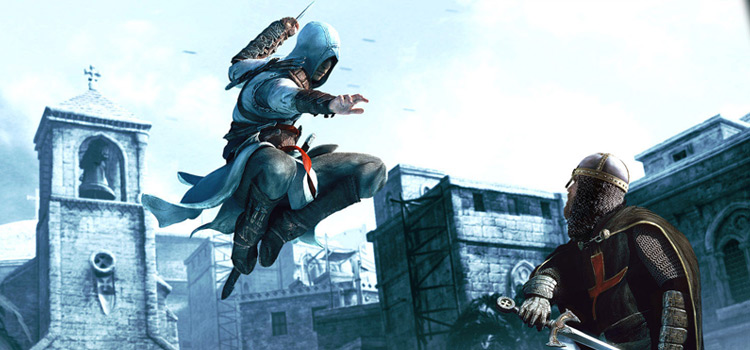
Few franchises have been as consistently successful as Assassin’s Creed.
The games offer historical exploration and stealth, which somehow manage to remain mostly historically accurate and highly educational despite including godly artifacts and the secret societies that seek to control them.
Assassin’s Creed has been going strong for more than 12 years, developing and reinventing itself to remain relevant and engaging while also pushing the limits of technical achievement forward with every installment.
Despite its ups and downs, the series doesn’t seem to be going anywhere anytime soon.
To celebrate these games(and to keep ourselves busy while we wait for the next chapter) I’m taking a look back at more than a decade of hidden blades and leaps of faith and come up with an in-depth ranking of all games in the massively acclaimed series.
20. Assassin’s Creed: Pirates (2013)
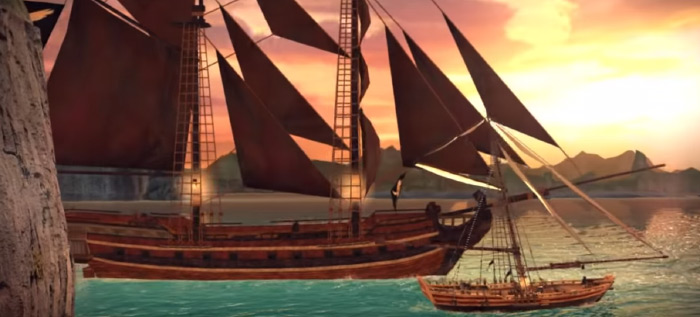
The first entry in my list is a thinly-veiled attempt to cash in on how much the public enjoyed and praised both the sailing and piracy elements of ACIV: Black Flag, and the resources already put into developing it.
The gameplay here focuses on the naval battles of Captain Alonzo Batilla between 1716 and 1718, a pirate who bumps into Assassins and Templars along his travels. It’s a lot more fun than it sounds at first glance.
Though you can hardly call this an Assassin’s Creed game, even with a very open mind about the series, and it’s just one of those things that remind us that Ubisoft is a business that needs to keep numbers in the green.
19. Assassin’s Creed: Altaïr’s Chronicles (2008)
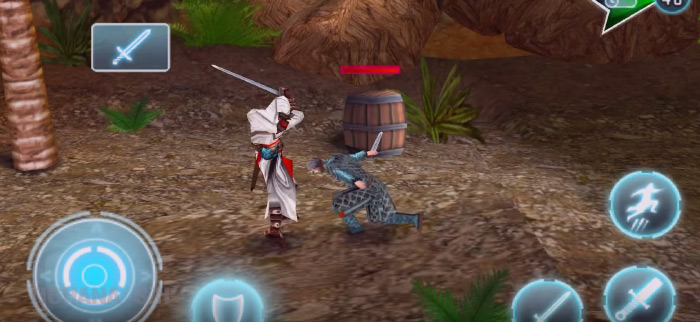
After the resounding success of the first Assassin’s Creed released the previous year, Ubisoft tasked Gameloft Bucharest with bringing the historical hitman experience to the Nintendo DS.
AC: Altair’s Chronicles was released as a prequel to the original, taking place in 1190 and following the exploits of Altaïr as he tries to retrieve a magical item called “The Chalice”.
While the overarching idea of using parkour and stealth to traverse the scenarios without being detected is still present, gameplay is greatly simplified on this handheld release.
The open areas of the original are replaced by side-scrolling levels and combat follows regular hack and slash mechanics.
Overall it’s not a bad game.
But it isn’t exactly what you’d call “good” either, and age hasn’t made it any better.
18. Assassin’s Creed II: Discovery (2009)
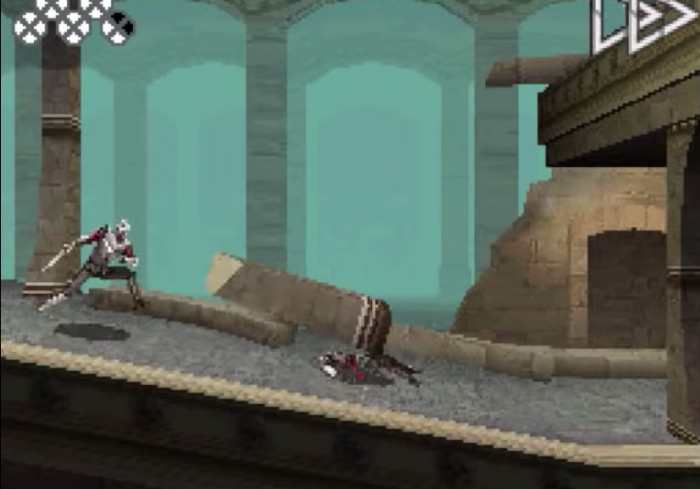
Along with AC: Bloodlines on the PSP and ACII on home consoles, Ubisoft also launched Assassin’s Creed II: Discovery.
This is a companion game for the Nintendo DS taking place in 1491 and following Ezio’s journey through Europe as he becomes involved with Christopher Columbus, Queen Isabella and a Templar-led Spanish Inquisition.
This entry in the franchise fully abandons the game-play of the previous games in favor of a side-scrolling platforming experience in a 2.5D perspective.
Instead of fruitlessly trying to emulate its parent game, it does its own thing very well.
The story is nothing to write home about but it’ll keep you interested enough to keep playing the game until the end.
Later the Assassin’s Creed Chronicles family of games would revisit similar game-play mechanics, albeit improved quite a bit.
17. Assassin’s Creed: Bloodlines (2009)
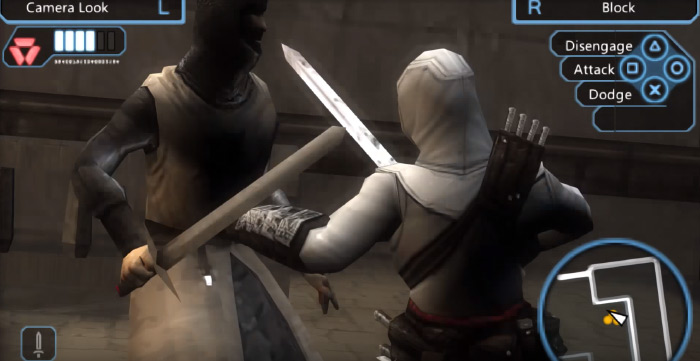
Two years after the release of the original Assassin’s Creed, Ubisoft released Assassin’s Creed: Bloodlines for the PSP.
This was also seen as a companion release to the second installment in the main series.
It follows the adventure of Altaïr after the events of the first game and showcases his relationship with ex-Templar Maria Thorpe, with whom he eventually has a child. Thus continuing the bloodline that would lead up to Desmond Miles in the present day.
It was developed by Ubisoft Montreal in conjunction with Griptonite Games with very similar mechanics to the original.
It’s a lot of fun even though it did away with some of the most refined aspects of stealth, climbing, and combat due to the technical limitations of simpler controls on the handheld.
Overall the game was warmly received and offered a fun experience for those who just couldn’t get enough of the franchise.
It was a solid attempt at bringing the AC series to your pocket. And if you have a PSP laying around it’s well worth dusting it off to try this.
16. Assassin’s Creed: Identity (2016)
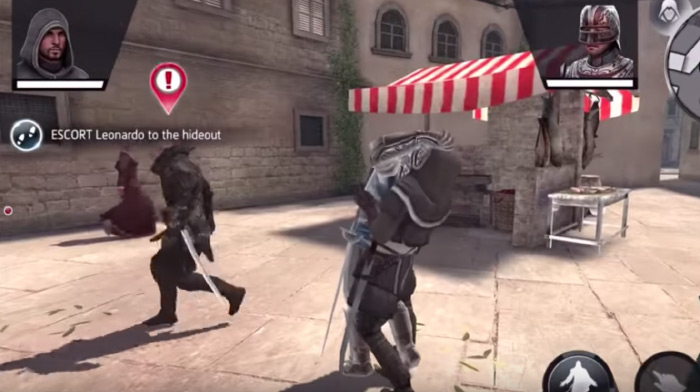
Ubisoft worked closely with developer Blue Byte to go into mobile gaming once again, this time with actual Assassin’s Creed style gaming.
In Identity, players may create their own Assassin with distinct classes and other customization elements. This character is made to oppose a Templar plot to impersonate and discredit the Assassins during the Italian Renaissance period.
As a mobile release, Identity is worthy of praise for having kept true to AC gameplay and actually offering a high-quality experience for gamers of all skill levels.
Which isn’t something you see every day with this kind of thing.
15. Assassin’s Creed: Rebellion (2018)
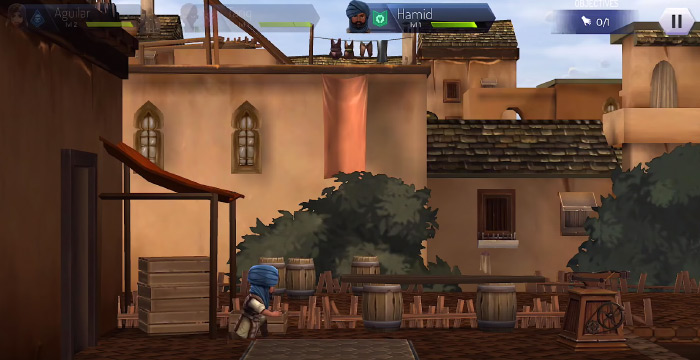
An even better experience, however, came two years later with yet another attempt at entering the mobile gaming market.
Rebellion is a strategy RPG with a cartoonish “chibi” art style, set during the time period associated with the Spanish Inquisition.
Actual gameplay focuses on the player building up their Brotherhood, both members and base of operations.
It includes recognizable characters such as Ezio Auditore, his apprentice Shao Jun (also featured in AC Chronicles) and some others.
While it isn’t a “true” AC experience, it’s a higher quality game overall than Identity. And those chibi-Assassins are the cutest killers ever.
14. Assassin’s Creed: Rogue (2014)
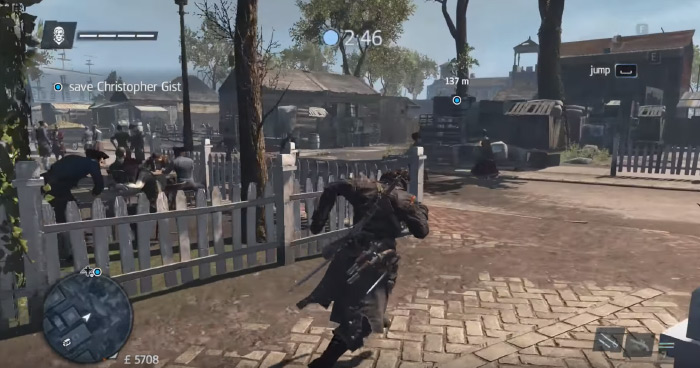
The last entry in the Colonial America saga that started with ACIII. Rogue follows Shay Patrick Cormac, an Assassin who abandons the Brotherhood to join the Templars after feeling himself betrayed and doubting their methods.
The narrative focuses heavily on showcasing how Assassins and Templars are, in a way, two sides of the same coin. None quite good or evil, just very different.
Not being bound by the rules of the Brotherhood makes Shay a somewhat different fighter, willing to forego secrecy and protecting civilian lives in pursuit of his objectives.
As such, his arsenal includes much more destructive weapons than usual. Like a grenade launcher.
His enemies also behave quite differently, given they’re Assassins. So you must always be on the lookout for assassination attempts and the like.
Naval exploration comes back in a similar fashion to Black Flag’s. But the Caribbean is replaced by the Arctic, bringing with it challenges and activities more related to such a setting.
The Morrigan, Shay’s ship, can also navigate shallow waters which expands your exploration possibilities to rivers and other shallow bodies of water.
Much like Revelations and Bloodlines before it, this game ties loose ends from the saga and leads the story into the next one.
Rogue isn’t a bad game. In fact, it’s a lot of fun and has some interesting elements that make it unique.
That said, it feels a bit like a throwaway release to milk the public’s love of sailing once again. Which they had already done with Freedom Cry (a game that backed it up with an amazing story) and the mobile AC: Pirates. Not a forgettable game but it left quite a bit on the table.
13. Assassin’s Creed: Unity (2014)
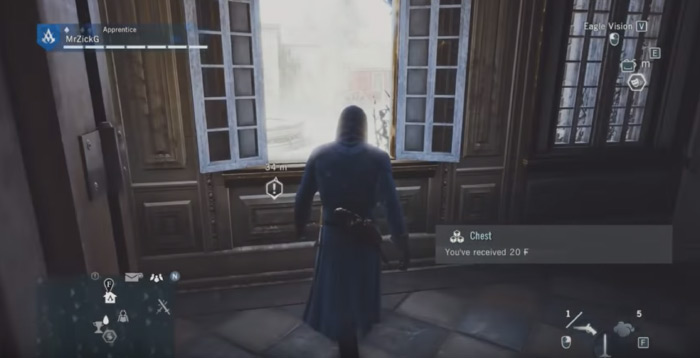
Leading the charge into the next generation of consoles is Assassin’s Creed: Unity.
This is set mostly in Paris during the French Revolution. The story follows the exploits of Arno Victor Dorian, as experienced by an unnamed user of the Helix, Abstergo’s in-universe gaming console.
You get contacted by the Assassins and asked to help them locate a tomb containing First Civilization DNA by playing through Arno’s memories.
Ubisoft put their resources and new powerful hardware to good use by creating an immense replica of Paris, with many landmark structures such as the Notre Dame Cathedral being measured down to the millimeter.
In fact, the Notre Dame model is so detailed it’s being used as a reference for the repairs after the Cathedral was partially destroyed in a fire.
Gameplay was also updated and set on a more RPG-like path, allowing you to customize Arno’s skills and weaponry in great detail to accommodate a wide variety of play-styles. The game also saw the addition of co-op multiplayer to replace the competitive deathmatch focus of past installments.
Regrettably, the game suffered from many technical difficulties at launch. And despite its immensely detailed historical fact-checking and investigation, the game fails to deliver a protagonist that inspires the player, which is basic for such a narrative-driven game.
Technical achievement doesn’t make a game fun or memorable, and Unity ends up failing in both fields.
12. Assassin’s Creed (2007)
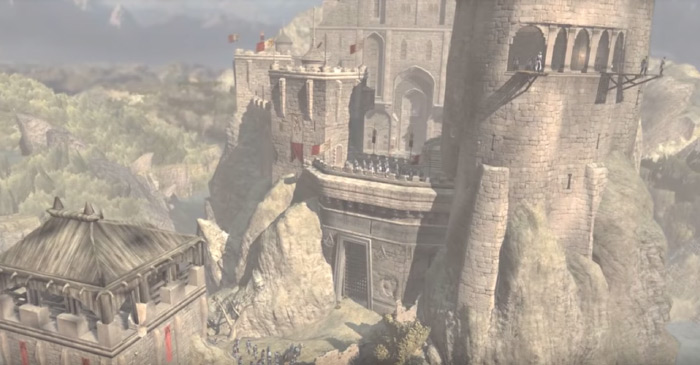
The first game in this iconic action-adventure series came out in 2007 for the Xbox 360 and PS3.
It was developed by Ubisoft Montreal who were originally working on a sequel to Prince of Persia: The Sands of Time, hence the similarities between the two.
The story introduces Desmond Miles, a bartender who’s kidnapped and put into the Animus(a machine that lets you re-live memories and experiences of ancestors).
In the Animus he synchronizes with his ancestor Altaïr ibn La-Ahad, a proficient member of the Assassins, a secret society locked in an age-old conflict with the Knights Templar. They wish to achieve peace by assuming control over mankind. Pretty deep stuff.
Most of the game takes place following Altaïr’s life during the Third Crusade in the Holy Land around 1191. This means you get to visit locations such as Jerusalem, Acre and Damascus, as well as Masyaf, the Assassin stronghold.
Gameplay focuses heavily on mobility and stealth, asking you to parkour around different scenarios to retrieve objects, gather information, and eventually assassinate targets.
The game introduced one of the series’ most iconic staples: the hidden blade, which allows you to appear unarmed and avoid detection until the time is right.
Its amazing graphical achievements, huge open sandbox areas to explore, unique story mixing both historical fiction and sci-fi, and an excellent orchestral score produced by Jesper Kyd, won this game the love of players and some awards.
Not to mention selling around 8 million copies worldwide and setting the course for the franchise.
11. Assassin’s Creed Chronicles (2015 – 2016)
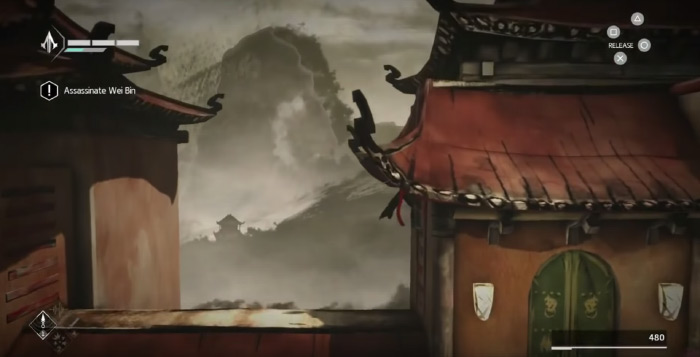
While working on the massive project that was AC: Origins, Ubisoft collaborated with Climax Studios for a new multi-location title.
This game would bring about a mini-series of three side-scrolling action adventure games exploring three distinct time periods: the Ming Dynasty in China, the Sikh Empire in India, and the aftermath of the October Revolution in Russia.
Each game features an art-style inspired by their respective setting.
The games follow different Assassins equipped with weapons representative of their location and time period.
Shao Jun, the Chinese Assassin, has acrobatic moves and a hidden shoe blade.
Arbaaz Mir, in India, has access to things like Chakram ring blades. And the Russian Nikolai Orelov uses a plain old rifle outfitted with a bayonet.
While not a traditional AC experience, Chronicles is a very polished game with a lot of creativity and care put into making it memorable. The characters are interesting and the periods they inhabit are some which the fans have been clamoring for ever since ACII came out.
10. Assassin’s Creed: Revelations (2011)
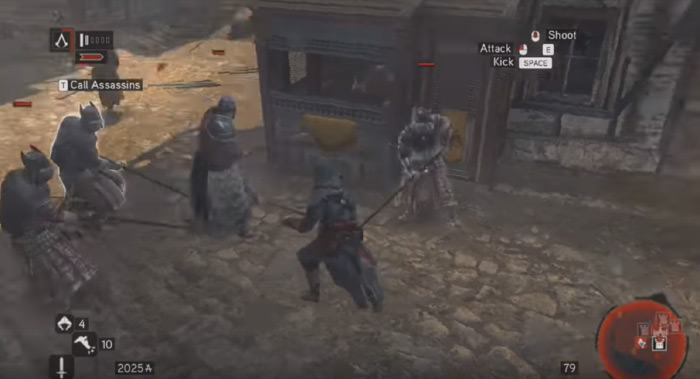
The final chapter in Ezio’s adventure was released just a year after AC: Brotherhood, starting the era of yearly Assassin’s Creed releases.
After being forced to kill one of his companions and falling into a coma at the end of the previous game, Desmond is put back into the Animus in hopes of helping him recover.
In it, Desmond relives one of Ezio’s last adventures as he tries to uncover Altaïr’s secrets through artifacts left behind by the latter.
The game takes place mostly in Istanbul, the center of the Ottoman Empire, between 1511 and 1512 as well as the revisited ancient Assassin stronghold in Masyaf.
The main addition to the game in terms of gameplay is the Hookblade, which allows Ezio to zip-line through the city’s rooftops and other scenarios as well as help him reach higher places.
This acts like a sort of Tower Defense mini-game where you control assassins from the Brotherhood to protect districts and bases from enemy attacks was also a new feature.
Revelations does an amazing job tying loose ends in Ezio’s story much like Bloodlines did for Altaïr, albeit in a more detailed fashion. All this while also providing a sufficiently different experience and many creative missions to set it apart from previous installments.
However much like Rogue, this title feels like it was just something they made to keep fans busy and interested while they were pouring resources and attention into the next era of the franchise.
9. Assassin’s Creed: Freedom Cry (2014)
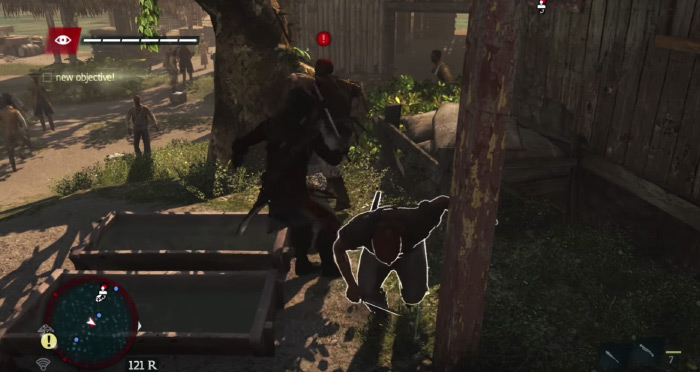
Born as a DLC add-on for ACIV and later being re-released as a standalone game, Freedom Cry takes the Black Flag formula and uses it to tell a very different story.
It follows Adéwalé, a former slave who becomes an Assassin and embarks on a quest to find his own convictions and oppose the slave trade.
Adéwalé, in his constant fight for freedom, is all that the Creed of the Assassins represents put into one person.
The game was praised for its treatment of the subject, even being nominated to a Writer’s Guild of America award. Its soundtrack, composed by Olivier Derivière and performed by both the Brussels Philharmonic and La Troupe Makandal, was also widely praised.
Overall I think Freedom Cry is a great example of how the medium can be used to tell deep, thought-provoking stories without sacrificing engagement and fun.
8. Assassin’s Creed III: Liberation (2012)
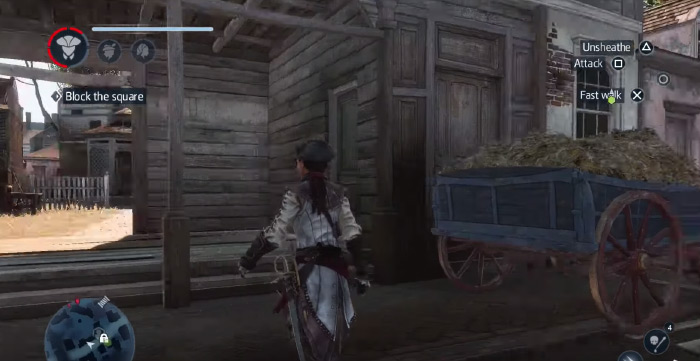
Alongside Connor’s adventure in ACIII, owners of a PS Vita could experience the trials and tribulations of Aveline de Grandpré: the first female lead in the series.
Liberation takes place near the end of the French-Indian War and deals with themes of slavery and racism in early America, as experienced by African-French Assassin Aveline between 1765 and 1777.
It tackles similar situations as Freedom Cry but from a new perspective.
Unlike previous handheld games in the franchise, Liberation kept the game’s formula intact thanks to the Vita’s powerful hardware. This delivers an incredibly high-quality experience accompanied by what might be the best soundtrack in the series as of yet.
While not necessarily having better game-play or story than previous entries in our ranking, Liberation is the single best AC experience on a handheld to date. It finally allowed us to enjoy it on the go, and I think that deserves recognition and praise.
7. Assassin’s Creed: Syndicate (2015)
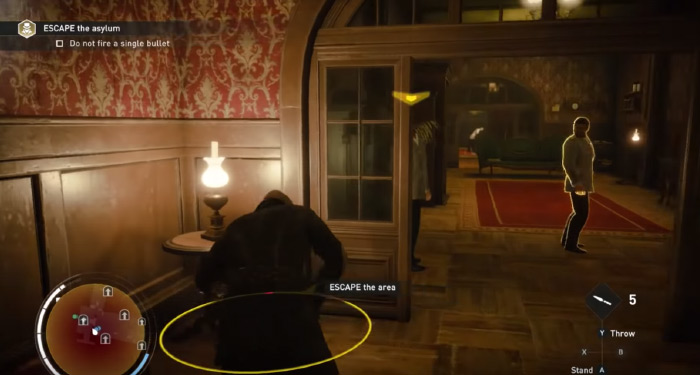
After the technical disaster that Unity was at launch, Ubisoft was in a tight spot going into development for the next installment in the series.
Ubisoft Quebec took the hint and went lighter on the technical side for Assassin’s Creed: Syndicate, focusing instead on creating likable characters and an absorbing story.
Enter the Assassin twins Jacob and Evie Frye, the leaders of the Rooks, which are a gang fighting for control of London during the Victorian period of its history.
The developers also re-imagined combat by taking a bit away from the RPG elements to focus more on fluidity and (most importantly) fun.
They also gave players access to many new weapons and tools such as a rope launcher that lets you rappel up buildings like Batman. Also included is a new cane sword and even a concealed revolver.
Now the story is experienced through the eyes of the same Helix player from Unity, who has now become an Assassin initiate and navigates the Frye’s memories as they interact with historical figures such as Charles Dickens, Charles Darwin and even Queen Victoria, in hopes of securing more useful information for the Brotherhood.
After their experience with Unity, however, Ubisoft knew the era of the classic Assassin’s Creed formula was coming to an end. Making this the last game in the series to follow it closely.
It inherited some of the bad rep that Unity earned. But overall it’s a great AC experience and a worthy goodbye to the classic game-play that made the series famous.
6. Assassin’s Creed: Origins (2017)
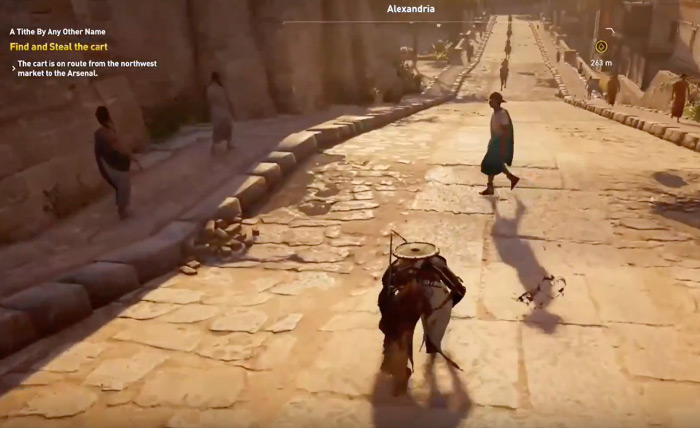
After working on it for two years following the release of Syndicate, Ubisoft finally released Assassin’s Creed: Origins.
This game is a complete reinvention of the series in terms of gameplay that focused on exploration and generally making the setting, Ptolemaic Egypt, into the protagonist and main focus of the game.
The story explores the origins of the Assassin Brotherhood and their age-old conflict through Bayek and Aya, the first Assassins. They’re being investigated in present times by Layla Hassan, an Abstergo researcher who later turns into an Assassin collaborator.
The narrative serves mostly as a vehicle to parade you around the massive open world Egypt and its landmarks, as well as introduce them to historical figures such as Cleopatra and the Caesar.
The developers seem to have taken pointers from many successful games in recent times.
The combat is completely revamped to work similarly to that of Dark Souls or the most recent God of War, while the immense open world is reminiscent of The Witcher III.
One of the most interesting aspects of Origins that really showcases the changes made by Ubisoft is the Discovery Tour expansion, which essentially turns the game into an educational tour of Ptolemaic Egypt with extensive information on different places and people and events.
While many players felt disappointed and even betrayed by Ubisoft for this dramatic change, the truth is that the franchise needed a big change to breathe new life into it and keep it fresh.
Yes, it may not be a “pure” AC experience. But the series tends to shine when they take the plunge and stray away from their own traditional conventions, like they did with ACIV and ACIII.
Origins was a step in the right direction for a series that struggled to find its way after a decade of many new launches.
5. Assassin’s Creed II (2009)
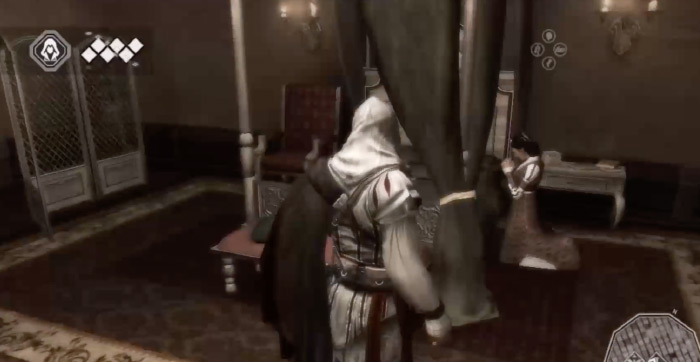
After the events of the first game, Desmond goes back into the Animus to experience the life of Ezio Auditore da Firenze: Italian playboy assassin extraordinaire.
The game takes place during the Italian Renaissance between 1476 and 1499, and it follows the journey of Ezio as he discovers his Assassin heritage and seeks revenge against the Templars for the hanging of his parents and brother.
The gameplay remains largely the same in concept as the original AC, but with much more fleshed-out combat and fluid parkour mechanics, among other improvements such as increased mission variety.
You can freely roam immense locations such as Florence, Tuscany, Venice, and Forli. Plus you can complete both main quests to advance the story and a wide array of side-missions and activities such as gathering collectibles, acquiring and improving businesses, competing in races, and participating in street brawls.
Progression is a very important element in the game.
You can upgrade Ezio’s equipment as the game progresses and the hidden blade gradually turns into a Swiss Army knife thanks to the contributions of the lovable Leonardo Da Vinci.
Along with that, Ezio takes over the Auditore family villa at Monteriggioni, which can also be developed and provides a periodic income as well as the opportunity to uncover its secrets.
Assassin’s Creed II was the game that put the franchise on the map for most people.
This all comes from its beautifully crafted cities, charismatic protagonist, and amazing musical score by Jesper Kyd which really sets the tone for the game.
When asked, many fans will instinctively say it’s also the best game in the franchise. But that’s probably a nostalgia-induced evaluation or at least slightly impacted by that.
It may be an amazing game, but the series didn’t drop dead after its release.
4. Assassin’s Creed: Brotherhood (2010)
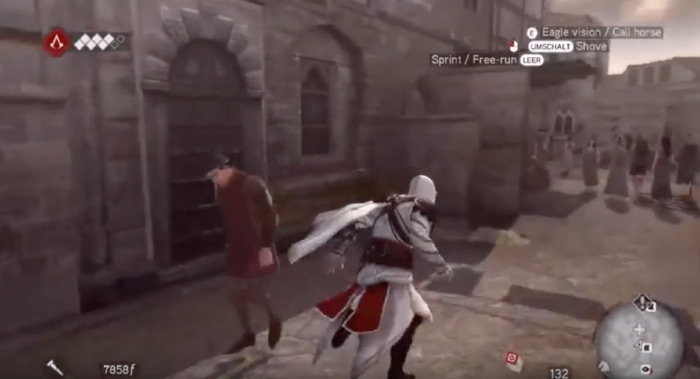
A year after the release of ACII, Ubisoft launched Assassin’s Creed: Brotherhood.
This title picks up directly where the previous installment left off. The main narrative follows Ezio during his conflict with the Borgia family between 1499 and 1507, taking place mostly in the city of Rome and its outskirts.
Desmond is reliving this in hopes of finding a way to stop an apocalyptic event coming in the year 2012 with the help of technology from the First Civilization.
The game follows the same formula as its predecessor, adding updated graphics and a more aggression-based combat system.
As the title suggests, the game also focuses on the development of the Assassins as an organization, which you can actively support by recruiting new members and sending them on missions. In return they can assist Ezio in combat.
In addition to exploring Rome on foot or on horseback, the player can also have Desmond leave the Animus to explore Monteriggioni in the present day, uncovering its secrets.
This was also the first Assassin’s Creed game to feature an online multiplayer mode that pits players against one another with the tools and techniques of the Assassins, as well as a couple other tricks.
Brotherhood essentially took everything that made ACII so good and perfected it, offering what may just be the quintessential classic AC experience.
3. Assassin’s Creed III (2012)
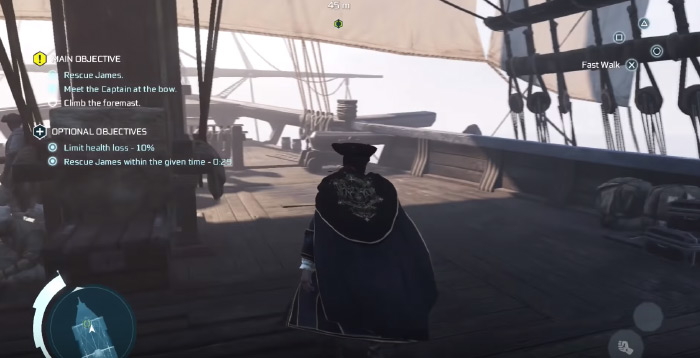
After recovering from his comatose state in Revelations, Desmond goes back into the Animus one last time to find out the location of the First Civilization vault he must access in order to protect the world from being wiped out by an incoming solar flare.
To do so he must synchronize with the memories of Connor, also known as Ratonhnhakét:on, a half-Mohawk who’s forced to abandon his native lands and become an Assassin during the events of the American Revolutionary War in order to protect his tribe and find out the truth about his lineage.
Connor’s Mohawk heritage is evident both in the way he fights.
Which in this game is much more aggressive and raw than what we’ve seen in previous installments. Same goes for the weapons and equipment he uses, among which are a Tomahawk axe, poison darts, and a very useful bow that allows for long-distance assassinations.
This game features much improved graphics and other beautiful aesthetic additions such as changing seasons and dynamic weather.
The team at Ubisoft Montreal put a lot of effort into crafting the American wilderness here, which paid off in an array of stunning vistas the player can find as they explore the Frontier where they’ll spend most of their time.
All of this accompanied by an amazing musical score composed by Lorne Balfe who had previously worked on AC: Revelations.
Assassin’s Creed III was also the first game in the series to include naval battles.
These have since become a much-loved staple of the series, present in most main entries in the franchise.
AC3 also featured one of the most insane DLCs in the series: The Tyranny of King Washington.
In this DLC Connor is shown an alternate timeline where Washington acquires a Piece of Eden and uses it to control the Americas and plot the enslavement of their former British masters.
The game ends with Desmond making the ultimate sacrifice by essentially getting his brain fried in order to activate the mechanism that could protect mankind from impending doom.
It marks the end of an era and a shift in the way the game would handle present-day elements moving forward.
ACIII was the first time Ubisoft took the risky decision of re-imagining big aspects of the series. And while on release the game was controversial among fans, looking back on it I think few can deny the sheer quality and polish of the finished game, and how much fun it can be to play.
2. Assassin’s Creed IV: Black Flag (2013)
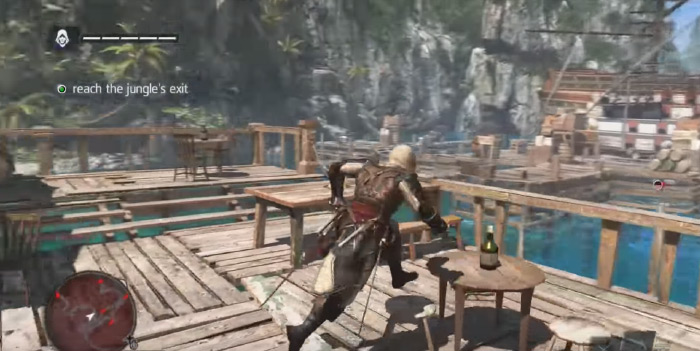
The radical changes in setting continued with the franchise’s next installment, which puts you in a massive representation of the Caribbean to explore as pirate-turned-Assassin:
Edward Kenway during the golden Age of Piracy, between 1715 and 1722.
You will spend most of your time at the helm of the Jackdaw, Edward’s customizable ship, as he hunts for treasure, boards merchant ships, sings sea shanties with his crew… and sometimes takes care of some Assassin business. Sometimes.
Other than the open seas, some of the main cities in the game include Havana, Kingston and Nassau. All beautifully designed and rendered.
In terms of narrative, some of the most interesting changes have to do with present day events.
Since Desmond is no longer around, perspective was shifted to a random Abstergo employee working on Abstergo Entertainment’s latest game, Assassin’s Creed: Black Flag.
The main antagonist in the game, along with the Templars, is The Sage: a reincarnating individual with First Civilization DNA who you meet both in Edward’s memories and the present.
The game’s combat and stealth systems remain essentially the same as in ACIII as the developers put most of their attention and resources into creating what’s essentially Pirate Simulator 2013.
While this was a bit of a controversial move on their part, the game ended up being well-liked and left a lasting impact on the franchise with the addition of well-developed naval warfare and exploration.
1. Assassin’s Creed: Odyssey (2018)
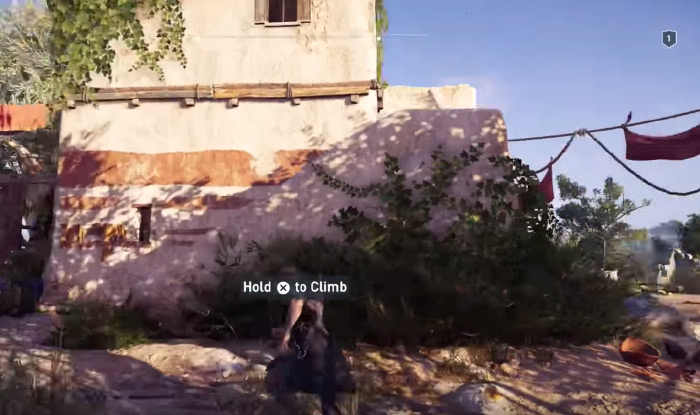
Generally the most technically impressive entry in the series also happens to be my #1 pick.
Odyssey takes place during the Peloponnesian War period of Greek history and lets the player explore and take part in the development of the Hellenic world, interacting with historical figures that shaped our society like Democritus, Socrates and Pythagoras.
The present day story takes off right where Origins left off.
It starts with Assassin collaborator Layla Hassan investigating the Staff of Hermes, a Piece of Eden of immense power.
To find it she explores the memories of Alexios or Kassandra, two mercenaries of Spartan descent who are the grandchildren of King Leonidas himself.
Along with expanding upon Origin’s new action RPG mechanics and focus on exploration, Odyssey is the first game in the series to present options for dialogue and quest choices that may affect the development of the story. That means each choice can lead into one of multiple possible endings.
You can even go as far as to choose who the main character has a romantic relationship with, regardless of gender.
The game ends with Layla Hassan at Atlantis, a First Civilization city, where she’s flabbergasted to find you alive and well after more than two thousand years. All thanks to the Staff of Hermes which you pass onto Layla, telling her she’s the key to saving humanity from destroying itself.
The rest of the story unfolds from there and it’s a doozy.
Games are ultimately about how much fun you can have with them. Odyssey is criticized by many for being as far away from “a real Assassin’s Creed game” as can be. But it’s a known fact that refusing to change is a surefire way to become creatively bankrupt and ultimately fade away.
Assassin’s Creed isn’t special only because of its gameplay. But also because of its setting and the way you are dropped in the middle of history to experience it in a new, engaging way.
It’s about new perspectives on old stories.
As long as Ubisoft stays true to that concept, the franchise will continue to gain fans and entertain millions with each installment.

